News
Science on Your Plate: A Taste of ETH Zurich's Food Systems Research at Food Zurich
World food system

The World Food System Center again partnered with the Food Zurich festival, presenting the captivating evening event "Science on Your Plate" (Wissenschaft auf dem Teller).
ETH Zürich startet ein neues transdisziplinäres Projekt zu pflanzenbasierten Wertschöpfungsketten in der Schweiz (Plant4Value)
World food system

Die ETH Zürich und das World Food System Center starten das transdisziplinäre Projekt Plant4Value zur Stärkung pflanzenbasierter Wertschöpfungsketten „vom Feld bis zum Teller». Das Projekt wird von der Stiftung Mercator Schweiz, der Seedling Foundation und der Minerva Stiftung gefördert. Mit 24 Praxispartnern werden innovative Massnahmen zum Ausbau pflanzenbasierter Wertschöpfungsketten und Ernährung getestet. Der Fokus liegt auf deren wirtschaftlichen, sozialen und ökologischen Tragfähigkeit.
From insight to impact: Researching collaborative colutions to address food surplus
- World food system
- Alumni

Alumni Stories: Aline von Jüchen reflects on her WFSC Summer School experience, sharing how it ignited her passion for sustainable food systems and shaped her current research on surplus food and collaborative solutions.
Insects to feed the world
- World food system
- Research

Updates from the Novel Protein for Food and Feed Flagship Project include new results from projects addressing food waste management using black soldier fly larvae and participation in the Global Symposium on Insects for Food, Feed and Food Security in Africa.
Small flies, big impact: RUNRES at the Circular Bioeconomy Network Conference
- World food system
- Research

The RUNRES team recently participated in the International Biochar Initiative and Circular Bioeconomy Network Conference in Nairobi. They showcased innovative Black Soldier Fly (BSF) technology, demonstrating how it converts organic waste into valuable resources, which in turn boosts food security and reduces costs in African city-regions.
1st EAAP Conference on Artificial Intelligence in Animal Science (AI4AS)
- World food system
- Institute of Agricultural Sciences

A few weeks ago, the 1st EAAP Conference on Artificial Intelligence in Animal Science took place at ETH Zurich. The event successfully brought together over 200 participants from around the world, showcasing current research on the role of AI in animal science and fostering meaningful exchange among researchers, professionals, and stakeholders.
ETH spin-offs sweep the board at Venture Awards
- Industry and innovation prizes
- Innovation & Industry
- Space research
- D-HEST
- Electrical engineering
- Materials science
- D-USYS
- Civil engineering
- Plant sciences
- News
- Institut für Agrarwissenschaften
- Spin-offs and patents
- Agricultural sciences
- D-MAVT
- Environmental sciences

Six spin-offs of ETH Zurich were among the 18 finalists in this year’s Venture Awards. Three of them won in their respective categories, and three came in second. The Grand Prize went to spin-off MyNerva.
Exploring food innovation across Switzerland
- World food system
- Research

As part of the Swiss Innovation Tour-Food Tech, a group of Italian opinion leaders traveled through Switzerland meeting actors in the food technology ecosytem. The group visited the World Food System Center to learn more about current research and collaborations focused on food processing for sustainable food systems.
Making farming more sustainable
- Agricultural sciences
- Innovation & Industry
- D-USYS
- Homehero
- Globe magazine

Three women spin-off founders from ETH Zurich have developed a portable measuring device that analyses soil quality and enables customised fertilisation. The device makes farming more sustainable and efficient while reducing its environmental impact.
Photosynthesis as a key for crop improvement
- World food system
- Research

By focusing on identifying efficient pea varieties with superior photosynthetic performance, a new interdisciplinary project explores an alternative approach to improving nitrogen use efficiency at the farm level.
Bacteria fight and feast with the same tool
- Environmental sciences
- Research
- D-USYS
- Geobiology
- Centre for Origin and Prevalence of Life
- Climate sciences
- D-EAPS
- Geological Institute
- News
- Biology

Many types of bacteria produce a protein complex that injects toxins into neighbouring cells to eliminate competitors. For the first time, researchers at ETH Zurich and Eawag discovered that these killer bacteria also use this weapon to feed on their neighbours.
Supporting exchange for agroecological transformation processes in India
- Institute of Agricultural Sciences
- World food system

A delegation from Indian ministries and universities visited ETH Zurich in May to learn more about research and initiatives focused on agroecology and resilience.
Old water, new insights
- Environmental Engineering
- Research
- D-USYS
- News
- Environmental sciences
- Climate sciences
- D-BAUG

Five years ago, an experiment began at ETH Hönggerberg: researchers set up an outdoor laboratory in the forest near the campus. They used sensors positioned in trees, the soil and in a stream to study water dynamics and the “old water paradox”. ETH News accompanied the head of the experiment, Marius Floriancic.
Advancing crop management with image-based 3D/4D analysis
- World food system
- Agricultural sciences

Recognizing the limitations of current crop monitoring techniques in providing timely and precise data, an ongoing project is developing an innovative solution using smartphone vision and Artificial Intelligence (AI). This technology is aimed to provide farmers and researchers with detailed 3D/4D insights into plant health and development, advancing sustainable agricultural management.
The Antarctic water puzzle – how flooding contributes to ice melt
- Climate sciences
- Research
- News
- Engineering sciences
- Cooperations
- International
- Environmental sciences
- D-BAUG

Hidden beneath the Antarctic ice lies a system of lakes and watercourses. An research team, including ETH researchers, has for the first time directly observed the subglacial streams of West Antarctica. Their study shows how individual flood events influence the melting of the ice.
ETH Zurich students tackle water challenges in agriculture at FAO course in Rome
- World food system
- Institute of Agricultural Sciences

The role of water for food and nutrition security was the central theme of a three-day course held at the Food and Agriculture Organization (FAO) headquarters in Rome. Organized by the World Food System Center, as part of a lecture on food security, the course brought together agricultural and environmental science students from ETH Zurich for an interactive learning experience.
Tackling an underestimated greenhouse gas with low-cost sensors
World food system

An innovative project is underway to equip farmers with low-power, cost-effective sensors designed to measure nitrous oxide emissions directly in their fields. This technology offers a promising route towards a more sustainable agriculture by enabling farmers to optimize fertilization and mitigate nitrous oxide emissions.
What is a food system?
World food system

The World Food System Center is launching the Food System Journey website, a platform allowing visitors to explore the challenges in our food system and discover innovative solutions from research at ETH Zurich through captivating graphics, videos, and stories.
World Food System Center Phase 3 Report
World food system

We are excited to share the report on our third phase of operations (2021-2024), which highlights our diverse research, education, and outreach activities focused on food system transformation.
Exploring Food Coalitions Beyond the Local Scale
World food system

Alumni Stories: Marta López Cifuentes shares how her Summer School experience sparked her interest in investigating alternative models of global food value chains, leading to the successful initiation of a project on trans-local food coalitions.
Advancing pest management: Drone-based eDNA monitoring for early detection
- World food system
- D-USYS
- Environmental sciences

ETH researchers are developing a drone-based eDNA analysis approach for early detection of invasive species in viticulture. This interdisciplinary project aims to overcome limitations of traditional monitoring, demonstrating the potential of this approach for biomonitoring in initial field trials.
BMEL Delegation visits ETH
World food system

ETH Zurich hosted a delegation from the German Federal Ministry of Food and Agriculture (BMEL) for a dialogue on research and applications in agroecology and the social dimension of food systems transformation.
“Switzerland’s glaciers could vanish completely by 2100”
- Environmental sciences
- Research
- News
- D-BAUG
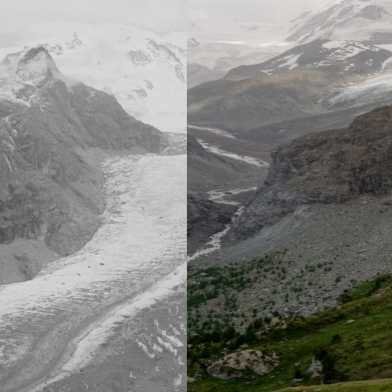
Switzerland’s glaciers are in increasingly poor shape. If greenhouse gas emissions are not cut drastically soon, they could cease to exist by 2100 – so says ETH Professor Daniel Farinotti in this ETH News interview to mark the first World Day for Glaciers.
The amount of selenium in the environment also has an impact on health
- Environmental sciences
- Research
- D-USYS
- News
- Homehero
- Globe
- Globe magazine
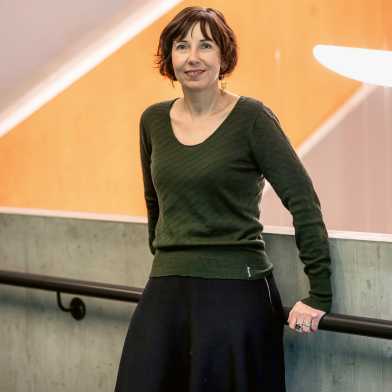
Lenny Winkel researches the environmental behaviour of trace elements such as selenium. A native of the Netherlands, she adores the Swiss mountains.
Investigating water and nitrogen balances in the fruit orchard of Europe

Focusing on the highly productive Campo de Cartagena area in southeast Spain, a new interdisciplinary project seeks to enhance the understanding of how different crop rotation practices impact water and nitrogen balances under climate change scenarios.
Call for Proposals: Addressing Environmental and Human Health Risks in Food Systems
- World food system
- Health sciences

A new research funding opportunity aims at addressing critical environmental and human health risks in food systems.
Call for Applications - World Food System Summer School 2025
World food system

We are excited to announce that applications for the 2025 World Food System Summer School “Design Ideas for Sustainable Food Systems” are open now!
Microalgae production for more sustainable and nutritious diets

Updates from the Novel Protein for Food and Feed Flagship Project include the research team from ETH Zurich recently contributed to the Spirulina Industry Development International Conference.
Transforming lives: Supporting sustainable sanitation at South African schools

The RUNRES team reports on a successful innovation for improving sanitation systems in South Africa primary schools. The devised state-of-the-art system improves sanitation facilities and also offers the unique, eco-friendly advantage of providing nutrients for school agricultural activities.
The cost of climate-neutral aviation in the future
- Environmental sciences
- Research
- News
- Sustainability
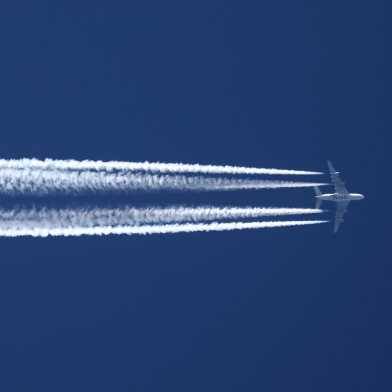
Flight ticket prices could rise by 50 percent if aviation is made climate-neutral. This is an estimate from a new study by researchers at ETH Zurich. It is based in particular on the use of synthetic fuels.
Improving training programs for women farmers in central India
- World food system
- Research

A recent study examined how training programs for Indian women working in agriculture can be improved. ETH student Alicia Luther found that effective trainings should be held in a participative and demand-driven way. A participative methodology is key to include participants’ topics of interest, making the potential for adoption higher.
Interpreting traces of arsenic in rain
- Environmental sciences
- Research
- D-USYS
- News
- Sustainability
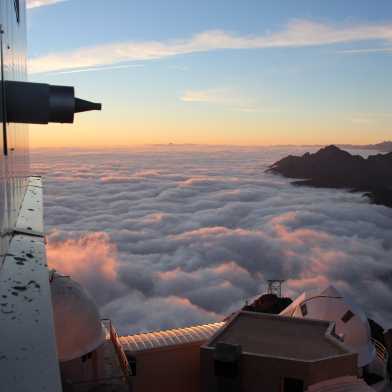
On the Pic du Midi in the Pyrenees, ETH Zurich researchers have analysed particulate matter, clouds and rainwater for traces of arsenic. Using newly developed measurement methods, they have elucidated the transport pathways of the environmental toxin in the atmosphere.
Daria Odermatt and Helena Ström receive SFIAR Award 2024
- D-USYS
- Institute of Agricultural Sciences
- World food system

Daria Odermatt and Helena Ström are the winners of this year's Swiss Forum for International Agricultural Research (SFIAR) award. Both Odermatt's and Ström's research offers promising pathways to healthier plants and increased yields for smallholder farmers in Africa.
Beyond the Price Tag: True Costs in the Food and Agricultural System

At a recent webinar, experts from various fields discussed the current state of true cost accounting, its challenges, and ongoing initiatives aimed at integrating this comprehensive approach into food systems. The event was hosted by the World Food System Center and the Swiss Society for Agricultural Economics and Sociology.
ETH Researchers join the World Food Forum
- World food system
- International
- Sustainability

A selected delegation of seven students and researchers represented ETH Zurich and co-organized a side event at World Food Forum, held at the FAO in Rome in October.
Climate change alone does not cause mass migration
- Sustainability
- News
- Forschung
- Zukunftsblog
- Environmental sciences
- D-MAVT
He set the tone for climate
- Environmental sciences
- Biodiversity
- News
- Sustainability
- Climate sciences
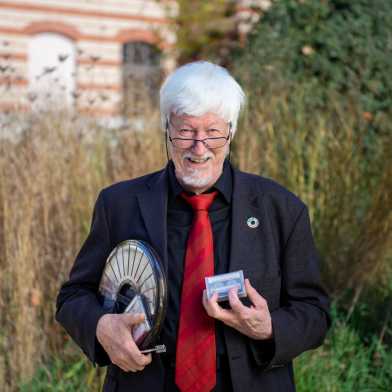
On 2 December, Andreas Fischlin will give his farewell lecture. Time for a profile of the systems ecologist who fought against climate change at the highest political level.
Previously unknown compound in chloraminated drinking water identified
- Environmental sciences
- Research
- D-USYS
- News
- Sustainability
- International

Since the 1980s, it’s been known that a mysterious contaminant forms in chloraminated drinking water, but only now has a Swiss-American research team been able to identify the unknown product in US drinking water systems.
ETH Zurich team takes home a quarter million in biodiversity prize
- Biodiversity
- Research
- D-USYS
- Events
- Homehero
- The latest honours and prizes
- International
- Environmental sciences
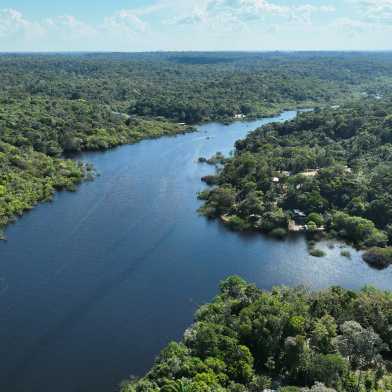
The XPRIZE Rainforest competition acknowledged ETH Zurich-led team for its development and deployment of novel, autonomous technologies that enable near real-time insights about biodiversity.
“Geoengineering will not solve the problem of climate change”
- Climate sciences
- Research
- D-USYS
- News
- Sustainability
- Institute for Atmospheric and Climate Science
- Environmental sciences

A team led by ETH climate researcher Sandro Vattioni has shown that diamond dust released in the atmosphere could be a good way to cool the climate. However, it is still not a sustainable solution to climate change, says Vattioni in an interview with ETH News.
AI on Our Plates
- World food system
- Sustainability
- Agricultural sciences

At the AI + Environment Summit in Zurich, an afternoon workshop led by the World Food System Center focused on the use of AI for sustainable food systems.
Public Lectures on Agroecology
- World food system
- Agricultural sciences
- Institute of Agricultural Sciences

Agroecology is a promising integrated and holistic approach that aims at transforming food systems. Join our upcoming public lecture series to learn more.
Crop forecasting from space
- Spin-offs and patents
- Research
- D-USYS
- News
- Plant sciences
- Space research
- Agricultural sciences
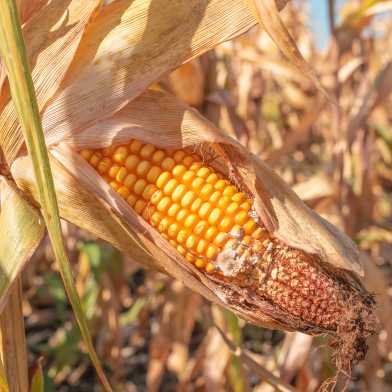
ETH spin-off Terensis is able to forecast the harvest yield and climate risks such as droughts and frost with the help of satellites. This not only helps farmers to plan. Authorities and insurance companies can also predict damage more efficiently.
From cell partitions to dams: These barriers are being investigated by ETH researchers
- Research
- D-HEST
- Environmental Engineering
- Life sciences and medicine
- Chemistry
- D-CHAB
- D-BIOL
- Spatial planning
- Globe magazine
- Homehero
- News
- D-ARCH
- Biology
- Environmental sciences
- D-MAVT
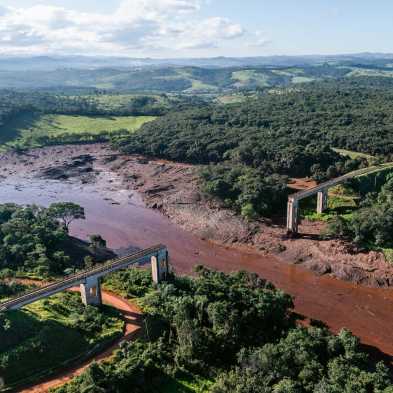
Research areas at ETH Zurich span barriers in a wide variety of fields, including cell biology, drug delivery and spatial planning. Below, we look at examples from six different disciplines.
Is there a perfect diet for a long life?
- Health sciences
- Research
- News
- Homehero
- D-HEST
- Food sciences
- Biology
- Globe magazine
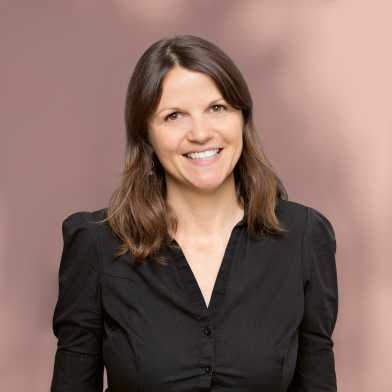
Nina Cabezas Wallscheid, Professor of Stem Cell Biology and Ageing, is researching the impact of nutrition on the human blood system. Her research team aims to identify the ideal diet for a long and healthy life.
How an ETH alumnus ended up growing coffee in Zambia
- Agricultural sciences
- Innovation & Industry
- D-USYS
- News
- Sustainability
- Homehero
- Globe magazine
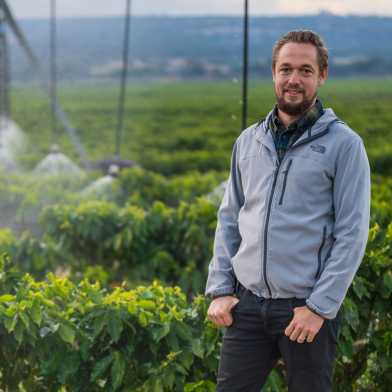
ETH agronomist Fridolin Stocker worked on Swiss farms before discovering his fascination for Africa. Today he manages a coffee farm in Zambia.
New method in the fight against forever chemicals
- Environmental sciences
- Forschung
- D-HEST
- News
- D-MAVT
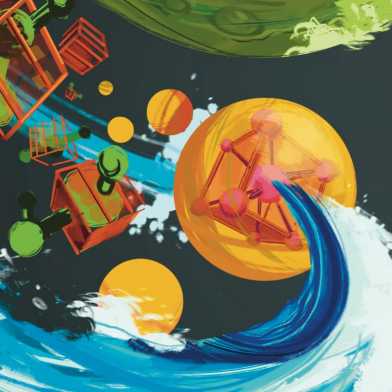
Researchers at ETH Zurich have developed a new way to break down a dangerous subgroup of PFAS known as PFOS. With the help of nanoparticles and ultrasound, piezocatalysis could offer an effective alternative to existing processes in the future.
FAO Director General visits ETH
World food system

The Director General of the United Nations Food and Agricultural Organization recently visited ETH Zurich to discuss innovation and collaboration for sustainable food systems.
ETH researchers receive SNSF grants
- Funding
- Research
- News
- Mathematics
- Chemistry
- Environmental sciences

Four researchers from ETH Zurich have successfully applied for Consolidator Grants funded by the Swiss National Science Foundation.
Millions of years for plants to recover from global warming
- Climate sciences
- Research
- D-USYS
- Earth sciences
- D-EAPS
- News
- Geophysics
- Environmental sciences
- Institute of Geophysics
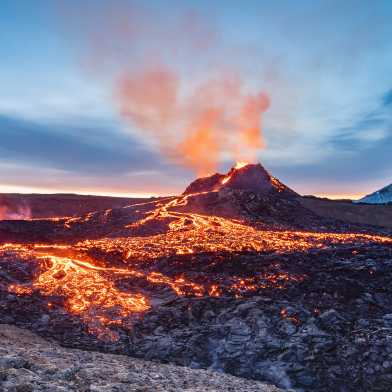
Catastrophic volcanic eruptions that warmed the planet millions of years ago shed new light on how plants evolve and regulate climate. Researchers reveal the long-term climate effects of disturbed natural ecosystems - its implications both in geological history and for today.
